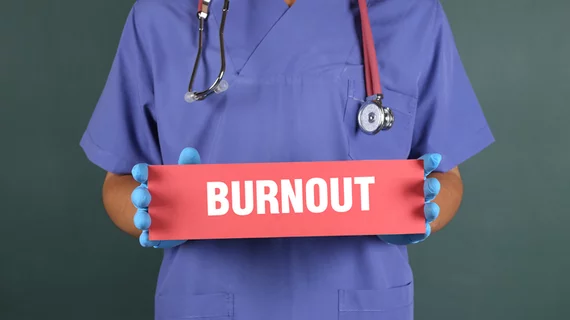House passes radiologist-backed bill to address burnout following physician’s suicide
U.S. House representatives passed a radiologist-supported bill to address provider burnout on Wednesday, Dec. 8, in response to a physician’s untimely passing last year.
The Dr. Lorna Breen Health Care Provider Protection Act is named after New York-Presbyterian Hospital’s 49-year-old former emergency department director, who died by suicide in April 2020. Representatives voted 392-36 to kick the bill back to the Senate for final approval after a few House tweaks.
Measures in the bill include grants for helping train physicians to address mental health issues, along with pinpointing best practices to prevent provider suicide. The American College of Radiology signaled its support for the Lorna Breen Act Friday, adding that there is a good chance the upper chamber will finalize it in short order.
“While the year-end legislative calendar remains in flux, the ACR is cautiously optimistic that the Senate will soon consider the legislation and possibly seek passage via the fast-tracked ‘unanimous consent’ process, which would clear the way for President Biden to sign the bill into law,” the college said in a Dec. 9 news update.
The bill would also create a national initiative urging healthcare professionals to seek support for mental health and substance abuse, and launch an exploration of COVID-19’s impact on such concerns. Some provisions of the legislation are funded by the American Rescue Plan Act, signed into law in March. Other supporters include the American Medical Association, American Academy of Emergency Medicine and similar groups representing family physicians and pediatricians, among others.
Rep. Abigail Spanberger, D-Va., one of the House bill’s supporters, believes there is a strong need for such services amid the public health crisis. She called the death of Breen — a native of Charlottesville, Virginia, and University of Virginia School of Medicine graduate — “absolutely heartbreaking.”
“From the earliest days of the pandemic, she — along with thousands of dedicated healthcare professionals across our country — worked tirelessly to treat patients from overcrowded waiting rooms,” Spanberger said in a statement Friday. “The paralyzing pressures these heroes face day in and day out have been greatly exacerbated by a global pandemic.

